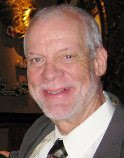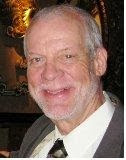History is replete with examples of leaders who may have been brilliant empire builders but whose lack of empathy made them brutal tyrants whose legacy was one of despicable cruelty–Genghis Khan, who was responsible for the killing of 11 percent of the world’s population; Tamerlane the Great (aka Timur, who is believed to have beheaded 90,000 people and built more than 1000 towers out of the rotting skulls); Vlad the Impaler; Ivan the Terrible; Belgian King Leopold II; and Pol Pot of Cambodia—to name but a few.
Compared to those tyrannical lunatics, our President is, thankfully, a consummate underachiever. He does share one trait with the aforementioned, however: he is totally lacking in empathy.
Empathy is a more powerful emotion than sympathy. While expressions of sympathy signify the speaker’s awareness of someone else’s emotional pain, empathy suggests that the individual shares that pain. Lesser animals than humans clearly are capable of feeling a sense of loss when a mate or offspring dies. That feeling may linger for days, weeks, or even longer. But I have never known or heard such a creature to demonstrate empathy for the loss of another of its species.
Science and art are the manifestations of humans’ great intellect. The limits seem boundless. Generation after generation, we humans achieve greater and greater means of advancing civilization. Leonardo de Vinci, who was both a scientist and an artist (and a genius at both), has expressed what I consider the most moving example of how empathy is a connection between the human and the Divine. Having created Man and Woman and seen that they were both good, the God of the book of Genesis extends his index finger to a reclining Adam in what appears to be a blessing, a sign of empathy between the Loving and the Beloved.
My gut feeling is that our current POTUS may never have felt thus blessed by his father. His older brother, Freddy, “who died at the age of 43 in 1981 of alcoholism, was apparently unable to conform to a family dominated by a driven, perfectionist patriarch and an aggressive younger brother”, Donald. [Citation: Jason Horwitz, New York Times, Jan. 2, 2016]. Instead, Donald learned that pleasing father meant being tough, never touching alcohol, and always—ALWAYS—coming out on top.
For our President, a person’s worth is determined by their wealth, fame, and influence. There is no place for empathy, the payoff for which cannot be measured in those terms. Showing empathy will not improve your golf score or get you seated at the best table at the Gramercy Tavern but it can do wonders for your human relationships and—who knows—it might even get you into Heaven.
© 27 Nov 2017
About the Author
I came to the beautiful state of Colorado out of my native Kansas by way of Michigan, the state where I married and I came to the beautiful state of Colorado out of my native Kansas by way of Michigan, the state where I married and had two children while working as an engineer for the Ford Motor Company. I was married to a wonderful woman for 26 happy years and suddenly realized that life was passing me by. I figured that I should make a change, as our offspring were basically on their own and I wasn’t getting any younger. Luckily, a very attractive and personable man just happened to be crossing my path at that time, so the change-over was both fortuitous and smooth. Soon after, I retired and we moved to Denver, my husband’s home town. He passed away after 13 blissful years together in October of 2012. I am left to find a new path to fulfillment. One possibility is through writing. Thank goodness, the SAGE Creative Writing Group was there to light the way.







